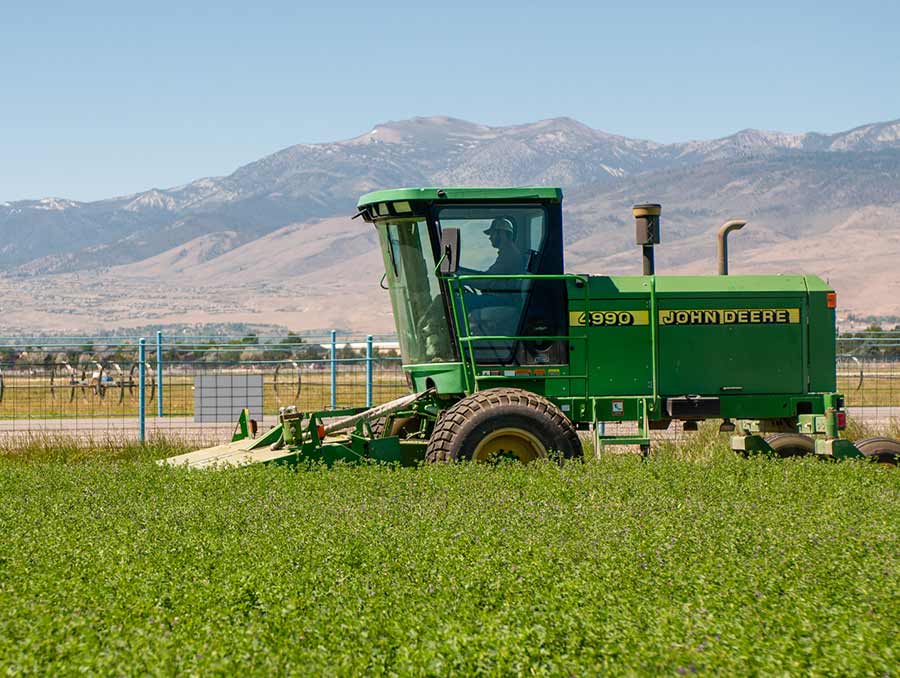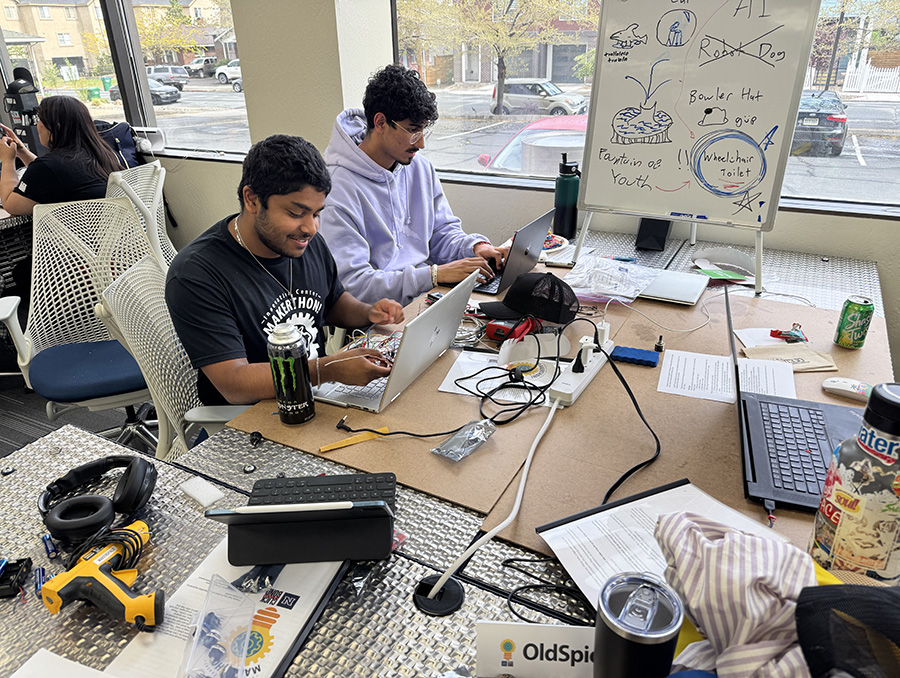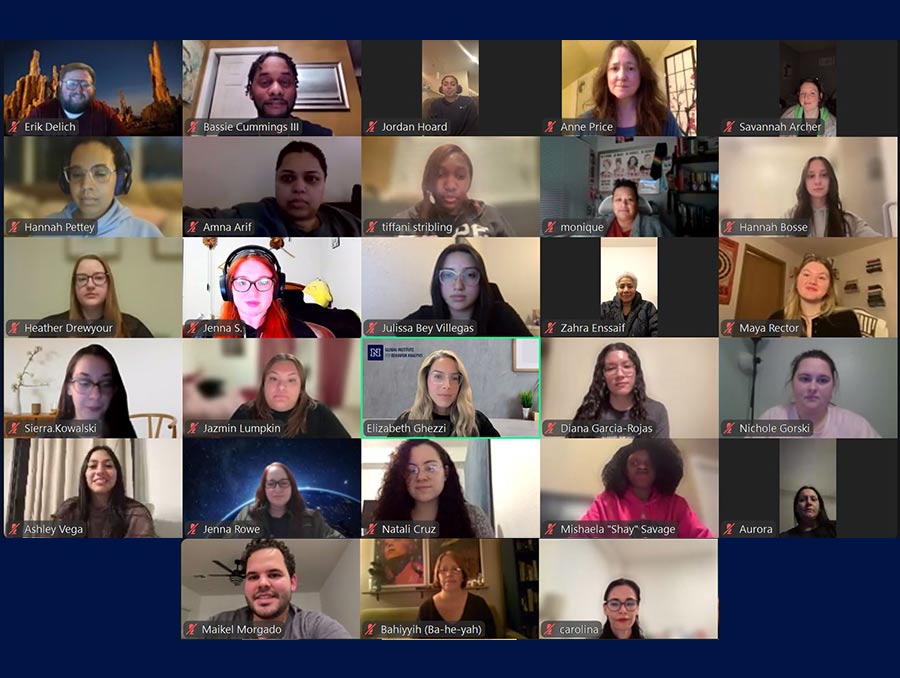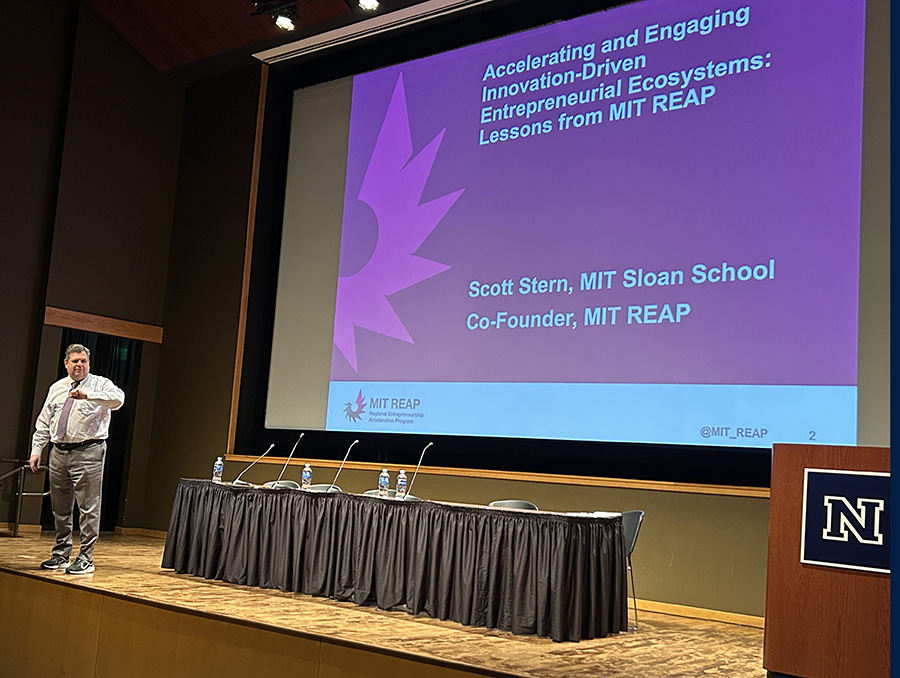The nation’s farmers and ranchers experience especially high levels of stress. This can lead to higher incidence of, for example, mental health issues, cardiovascular issues and high blood pressure, detrimental behaviors that lead to chronic disease, substance abuse, and even suicide. Researchers at the University of Nevada, Reno; Colorado State University; and Montana State University have designed a survey that is now available online for producers to provide researchers with more information about the various stressors that farmers and ranchers are facing, as well as what can be done to help them and their families.
Lindsay Chichester, University of Nevada, Reno assistant professor and Extension educator in Douglas County, is one of the researchers who designed the survey, which is part of a program designed to provide assistance for producers in the West. She says that a variety of factors make farming and ranching for a living especially stressful, including unstable finances and product price fluctuations, carrying the pressure of expectations to keep a multigenerational ranch or farm running, injury, chronic/acute illness, droughts, floods, pests that damage or destroy crops, and recent COVID-related additional stressors.
Known as “Dr. Lindsay” to many in the country’s agriculture industry and on social media, Chichester understands the ups and downs of farming and ranch life, growing up on a cattle and sheep ranch in northern California, before going on to earn her doctorate in agricultural sciences. She says producers often don’t have good “help-seeking skills.”
“We tend to be stoic, and not want to admit we need help, not even to ourselves,” she said.
But, according to Chichester’s colleague and partner in designing the survey, Brenda Freeman, “Stress is debilitating – it affects our bodies and our health.”
Freeman, a professor of counseling and educational psychology and Extension specialist at the University, has seen the havoc stress can wreak in individuals in her more than 30 years of providing counseling.
“People think it’s a lightweight topic,” she said. “But, they are missing the depth of the multiple ways stress will impact their work, their business, their health and their families. It seeps into all aspects of their lives.”
In fact, with the increased chronic stress that agricultural producers are experiencing, the suicide rate among farmers and ranchers is higher than it is in the general population. The agriculture industry group was one of five industry groups identified in a study by the Centers for Diseases Control and Prevention with suicide rates significantly higher than other major industry groups.
“Overall farming and ranching has a suicide rate six times higher than many other occupations, with 90 deaths for every 100,000,” Freeman said.
To help, Freeman and Chichester, along with researchers at Colorado State and Montana State, have designed the online survey for producers, called the Western Region Farm and Ranch Stress Assistance Survey. The survey is part of the Western Regional Agricultural Stress Assistance Program, of which the University of Nevada, Reno is one of 10 lead agencies. The program seeks to help producers in 13 Western states and four territories, and is funded by a USDA Farm and Ranch Stress Assistance Network grant.
The survey is meant to find out more about the specific stresses faced by farmers and ranchers, what help they need, and how they would most likely seek help and access it. Then, the researchers hope to use this information to create programs and resources to help the producers.
“It’s not just a matter of having compassion for our ag producers, which, of course, we do,” said Chichester. “It’s also a matter of food security. As a nation, we need our ag producers. We can’t afford to rely on other nations for our food supply. We need to make sure our ag producers are getting the resources they need to stay healthy, and to stay in business.”
Freeman and Chichester hope to get at least 100 Nevada producers to participate in the online survey by the end of May. And, while this survey is intended for producers, meaning farm or ranch owners or managers, a separate survey for farm and ranch workers will be designed and conducted as part of the program next spring.
For links to the survey in both English and Spanish, go to the survey website. For more information on the survey or on assistance available to help producers experiencing stress, email Chichester or call 775-782-9960, or email Freeman or call 775-682-9353. Producers needing immediate help should call the Farm Aid hotline, 1-800-FARM-AID; or the National Suicide Prevention Lifeline, 1-800-273-8255.
















